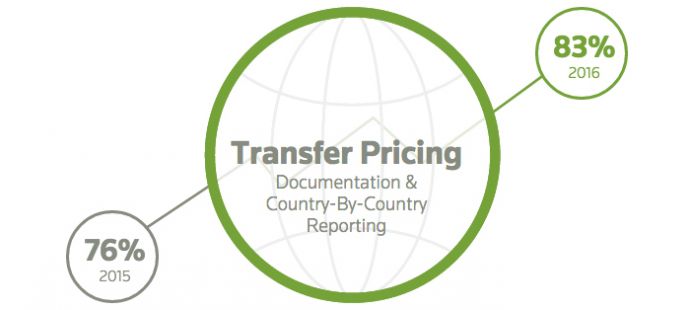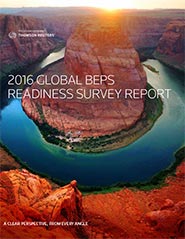Bold new global tax requirements to combat corporate tax avoidance present a fundamental change in compliance and reporting for multinationals. New compliance deadlines are on the horizon, and you need to be prepared.
Introduced by the Organization for Economic Co-operation and Development (OECD), the Base Erosion and Profit Shifting (BEPS) initiative seeks to close gaps in international taxation for companies that allegedly avoid taxation or reduce tax burden in their home country by moving operations or migrating intangibles to lower tax jurisdictions. The BEPS Action of most immediate concern to tax professionals is Action 13, country-by-country reporting (CbCR). Companies with earnings over €750 million, or typically the local equivalent, must submit reports to tax authorities beginning as early as January 1, 2017.
To date, more than 60 countries have issued rules to implement the CbCR minimum standards, or revealed their intent to in the near future.
How are multinational enterprises preparing for BEPS-related compliance?
2016 Global BEPS Readiness Survey Report
Local BEPS implementation and global tax reform
All G20 and OECD countries plus Denmark and Mexico have agreed to implement CbCR in some form. More than ever before, doing business globally requires the collection and regular monitoring of tax rates and regulatory information from multiple jurisdictions. In our June 2016 research on BEPS compliance, conducted in association with TP Week, 83% of respondents report Transfer Pricing documentation and country-by-country reporting as requiring the biggest change from them, among all of the BEPS Actions.
Perceived challenge of Transfer Pricing documentation and CbCR

Penalties for non-compliance vary from country to country, with the possibility of criminal convictions in the Netherlands. On top of that, resulting tax adjustments could affect your company’s future earnings, not to mention the reputational damage.
Companies need to start compiling data now to comply with CbCR requirements by country-specific deadlines.
Inadequate data management and systems are making things harder
Our research on BEPS compliance also reveals the greatest perceived tax challenges for corporates are compliance and reporting, and related data management.
The way in which Enterprise Resource Planning systems (ERPs) are structured across most multinationals does not make data management easy. Some 28 percent of respondents say their biggest challenge is having data housed in disparate systems, a particular conundrum for multinationals dealing with M&A activity and legacy systems. Having a single platform to pull together all of these different data sets from around the globe will be of utmost importance.
“Companies are not fully mindful of how difficult it will be when they go to pull the information required.”
– Sam Cicogna, VP and Head of Transfer Pricing, Thomson Reuters
Companies will also need to research the most up-to-date information on the regulations or treaties applicable to them in order to keep up with the amount of changes taking place. And implement a comprehensive tax technology for a standardized and sustainable worldwide tax collection process.
As a world leader in understanding tax regulation, Thomson Reuters arms you with the tools, insights, and technology you need to simplify tax complexity and flourish in the post-BEPS environment.
Is your company really ready for international tax compliance? (Interview with OECDs Pascal Saint-Amans)
Get the lowdown on enhanced global tax disclosure in the post-BEPS world
BEPS action plan: Year one survey results
More answers on global BEPS tax reform







